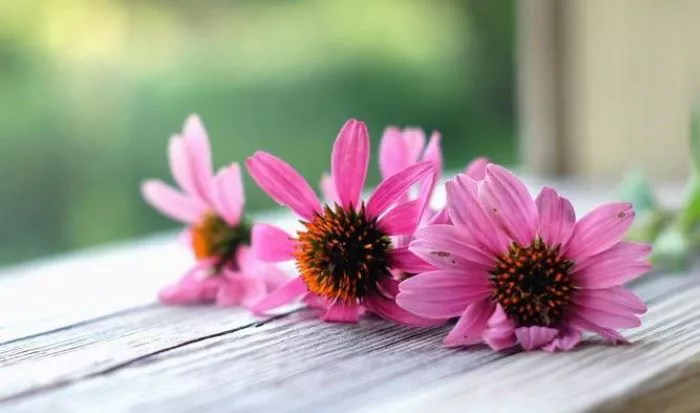Rabbits are charming creatures, but they can become a significant nuisance for gardeners. These small mammals are known for their love of flowers, vegetables, and other garden plants. When rabbits invade a garden, they can quickly cause damage, leaving behind chewed stems and missing blooms. Understanding how to keep rabbits away from flowers is essential for maintaining a beautiful and thriving garden. This article explores effective strategies to deter rabbits while promoting a healthy garden environment.
Understanding Rabbit Behavior
To effectively keep rabbits away from flowers, it is important to understand their behavior and preferences. Rabbits are herbivores and primarily feed on tender plants, including flowers, vegetables, and shrubs. They are most active during dawn and dusk, which means they often forage in gardens during these times.
Rabbits tend to favor certain plants over others. They are drawn to soft, leafy greens and young shoots. Knowing which plants attract rabbits can help gardeners make informed decisions about what to plant and how to protect their flowers.
Physical Barriers
One of the most effective ways to keep rabbits away from flowers is to use physical barriers. Fencing is a common solution, but it must be implemented correctly to be effective.
Fencing: A fence should be at least 2 to 3 feet high to prevent rabbits from jumping over. It is also important to bury the bottom of the fence about 6 to 12 inches underground. This prevents rabbits from digging underneath the fence. Using wire mesh or hardware cloth with small openings (1 inch or less) can provide an effective barrier.
Row Covers: Lightweight fabric row covers can protect young plants from rabbit damage. These covers allow sunlight and moisture to reach the plants while creating a barrier that rabbits cannot penetrate. Ensure the covers are securely anchored to prevent rabbits from getting underneath.
Garden Cages: For individual plants or small flower beds, consider using wire cages. These cages can be made from hardware cloth or chicken wire and should be tall enough to protect the plants while allowing for growth.
Repellents
In addition to physical barriers, various repellents can help deter rabbits from approaching flowers. These products can be effective when used correctly.
Commercial Repellents: Many commercial repellents are available that contain natural ingredients designed to deter rabbits. These products often have strong odors or tastes that rabbits find unappealing. Follow the manufacturer’s instructions for application frequency and coverage.
Homemade Repellents: Gardeners can create their own repellents using common household ingredients. A mixture of water and hot pepper sauce can be sprayed on plants to deter rabbits. Another option is to use garlic or vinegar diluted in water. The strong scents can help keep rabbits at bay.
Scent Deterrents: Rabbits are sensitive to certain smells. Planting herbs such as mint, rosemary, and lavender around flower beds can help deter rabbits. The strong fragrances of these plants can mask the scent of the flowers that attract rabbits.
Plant Selection
Choosing the right plants can also help keep rabbits away from flowers. While no plant is completely rabbit-proof, some are less appealing to these animals.
Unpalatable Plants: Consider planting flowers that rabbits tend to avoid. These include marigolds, daffodils, and lavender. These plants have strong scents or tastes that make them less appealing to rabbits.
Native Plants: Native plants are often better adapted to local wildlife, including rabbits. They may be less likely to attract rabbits due to their natural defenses. Researching local native plants can provide options that are both beautiful and less appealing to rabbits.
Companion Planting: Using companion planting techniques can help deter rabbits. By planting strong-smelling herbs or flowers alongside more vulnerable plants, gardeners can create a natural barrier that may discourage rabbits from approaching.
Habitat Management
Managing the garden environment can also play a significant role in keeping rabbits away from flowers.
Remove Attractants: Keep the garden clean and free of debris where rabbits might hide or nest. Tall grass, brush piles, and dense shrubbery can provide cover for rabbits. Regularly trimming back overgrown areas can help reduce hiding spots.
Maintain a Tidy Garden: A well-maintained garden is less inviting to rabbits. Regularly harvesting vegetables and removing fallen fruit can help minimize attractants.
Use Mulch Wisely: While mulch can benefit plants, it can also provide shelter for rabbits. Consider using gravel or stones as mulch around flower beds to create an inhospitable environment for rabbits.
Timing and Seasonality
Understanding the seasonal behavior of rabbits can help gardeners plan their strategies more effectively.
Spring and Summer: During the spring and summer, rabbits are more active and may be more likely to venture into gardens in search of food. Implementing barriers and repellents during these seasons is crucial.
Fall and Winter: In the fall, rabbits may begin to seek shelter for the winter. They may still forage in gardens but will be less active. However, it is still important to maintain barriers and remove potential food sources.
Conclusion
Keeping rabbits away from flowers requires a combination of strategies that address their behavior and preferences. Physical barriers, repellents, careful plant selection, habitat management, and seasonal awareness all play essential roles in protecting a garden from these persistent herbivores.
By implementing these strategies, gardeners can create a beautiful and thriving environment that is less susceptible to rabbit damage. With the right approach, it is possible to enjoy a flourishing garden filled with vibrant flowers while minimizing the impact of rabbits.


